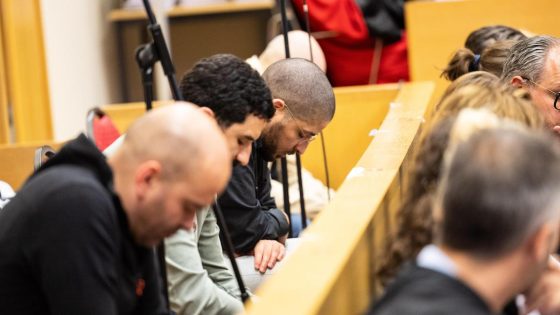Andy De Wolf was found guilty of raping eight women, all of whom were his former partners, in a landmark Belgian court ruling. The case, which came to light after his most recent partner filed a complaint, highlights serious concerns about domestic abuse and sexual violence in Belgium. The verdict was delivered on 7 April, with the News reaching the public by 2025-05-28 01:50:00.
- Andy De Wolf schuldig aan verkrachting ex-partners
- Onderzoek startte na klacht meest recente partner
- Ex-partners meldden herhaald misbruik en geweld
- Psychiatrisch rapport toont antisociale persoonlijkheidsstoornis
- Rechtbank veroordeelt tot acht jaar cel
- Onmiddellijke aanhouding wegens recidive en vluchtgevaar
De Wolf’s abusive behaviour reportedly included physical violence, isolation, and coercion, even forcing his pregnant partner into degrading acts. This disturbing case has sparked widespread discussion about how perpetrators exploit vulnerable women, raising urgent questions about protection and justice in intimate relationships.
What does this verdict mean for victims of domestic violence in Belgium? And how can authorities better prevent such crimes? The following summary offers a clear overview and key insights.
The case prompts reflection on the systemic issues surrounding intimate partner violence in Belgium. How did De Wolf evade detection for so long, and what lessons can be learned? Key points include:
- De Wolf targeted women with low self-esteem or trauma, exploiting their vulnerabilities.
- Psychiatric evaluations revealed antisocial and narcissistic personality disorders, indicating a high risk of future violence.
- Despite denials, evidence and testimonies were compelling enough for conviction and immediate imprisonment.
- The involvement of an accomplice, his uncle, highlights the complexity of abuse networks.
Looking ahead, Belgian authorities and communities must reinforce prevention strategies and victim assistance programs. How can society better recognize warning signs and intervene earlier? Increased awareness and swift justice are crucial to safeguarding vulnerable individuals and breaking cycles of abuse.
































